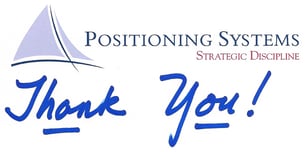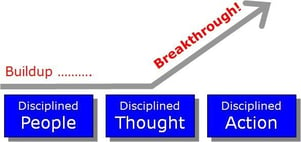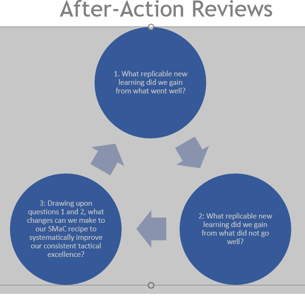I’m traveling this week and as a follow-up to Five Conditions Under Which Your People Will Execute Well! Elizabeth Hines, writer, and editor at Assignment Help and Academized is our guest blogger. She is a contributing writer for OX Essays. As a content writer, she writes articles about the latest tech and marketing trends, innovations, and strategies.
 This past year has meant that many people were advised to work from home if possible, and the pandemic has caused this to be the only way that some people can work at this moment in time. Due to this, the social aspects of a workplace and the positive impact of having the work environment outside of the home have disappeared. As an employer or manager, you need to understand the impact of this on your workers. Remote workers will need more affirmation of their progress and commendation on their work than they would regularly in the office.
This past year has meant that many people were advised to work from home if possible, and the pandemic has caused this to be the only way that some people can work at this moment in time. Due to this, the social aspects of a workplace and the positive impact of having the work environment outside of the home have disappeared. As an employer or manager, you need to understand the impact of this on your workers. Remote workers will need more affirmation of their progress and commendation on their work than they would regularly in the office.
Though many people are enjoying the flexibility of remote working at the moment, it can also present challenges such as work-life balance being encroached upon, and never being able to get away from the job. Because remote work cannot be confined to an office building in a major city 9-5, people may end up working much more than they get paid for and will struggle without people around them in a social setting to validate their work or to unwind with. Below are seven simple ways to get started, and make your workers feel appreciated.
1: Say Thank You –
It may seem overly simplistic and obvious, but it is often the easiest to forget. In my first three years of working, I only heard thank you from my direct supervisor when I brought him coffee one morning when he was hungover. Sylvester Dodd, a recruiter at Lia Help and Boomessays noted that; “Thanking people has become a lost art, and we as a culture have become so presumptuous that we assume thanking people is not necessary.” We figure, they are getting paid to do it, why is praise necessary? Thanked, and appreciated people will produce better quality work (and be better quality people to work with).
2: Encourage Professional Progression –
Encouragement goes a long way, just as appreciation does. As humans, we are built to want to progress in our chosen fields. It is encouraging to feel that our superiors believe in our professional growth, and this will subtly make your workers feel appreciated, while simultaneously motivating them to work harder to progress upwards.
3: Recognize Successes in Group Settings –
 Being called out for something negative or for a mistake is a childhood scar I am sure we all have in some form, but being called out for something positive or achievement will have the same permanent effect (positive, instead!). Even if it is a simple nod to a worker’s recent achievements on a Zoom call, it will make them feel accomplished among and in front of their peers, while simultaneously receiving your approval as a manager or supervisor.
Being called out for something negative or for a mistake is a childhood scar I am sure we all have in some form, but being called out for something positive or achievement will have the same permanent effect (positive, instead!). Even if it is a simple nod to a worker’s recent achievements on a Zoom call, it will make them feel accomplished among and in front of their peers, while simultaneously receiving your approval as a manager or supervisor.
4: Offer Online Learning & Opportunities for Development –
Following up on professional progression; many people may feel that their progression has been stunted by the pandemic and feel ‘trapped’ in their position. It is important to offer online learning and development opportunities in place of the development and training that would have been taking place in person under different circumstances.
5: Plan Virtual ‘Hangouts’ –
It is important to plan social events while remote working is taking place, otherwise, workers will begin to feel isolated. Maintaining community will make workers feel appreciated, and help each employee's mental health. Fun ideas could be a game night, a drinking night, or a ‘pub quiz.
6: Ask for Their Contribution When Making Decisions –
Allison Hackett, a business writer at State of writing and Essayroo said, “The most appreciated an employee will ever feel is when their direct supervisor comes to them for contribution or advice.” This will not only make them feel valued but that they are integral to the company.
7: Show you Care –
Show you care. Remember their birthday, ask how their day was. At times like these, it really is the little things that count the most.
I could give you a list a mile long of different psychological tips and tricks that would make your employees feel perfectly appreciated, but there is no better advice than to simply just care. Your employees will always feel appreciated if they know that they are working for someone who sees them as more than a number and truly knows them.
To create an environment where everyone is inspired to give their best, contact us today to schedule a free exploratory meeting.
Growth demands Strategic Discipline.
 Building an enduring great organization requires disciplined people, disciplined thought, disciplined action, superior results, producing a distinctive impact in the world.
Building an enduring great organization requires disciplined people, disciplined thought, disciplined action, superior results, producing a distinctive impact in the world.
Discipline sustains momentum, over a long period of time, laying the foundations for lasting endurance.
.jpg?width=256&name=3%20Disciplines%20of%20Execution%20(Strategic%20Discipline).jpg) A winning habit starts with 3 Strategic Disciplines: Priority, Metrics, and Meeting Rhythms. Forecasting, accountability, individual, and team performance improve dramatically.
A winning habit starts with 3 Strategic Disciplines: Priority, Metrics, and Meeting Rhythms. Forecasting, accountability, individual, and team performance improve dramatically.
Meeting Rhythms achieve a disciplined focus on performance metrics to drive growth.
Let Positioning Systems help your business achieve these outcomes on the Four most Important Decisions your business faces:
|
DECISION |
RESULT/OUTCOME |
|
PEOPLE |
|
|
STRATEGY |
|
|
EXECUTION |
|
|
CASH |
|
Positioning Systems helps mid-sized ($5M - $250M) business Scale-UP. We align your business to focus on Your One Thing! Contact dwick@positioningsystems.com to Scale Up your business! Take our Four Decisions Needs Assessment to discover how your business measures against other Scaled Up companies. We’ll contact you.
 NEXT BLOG – “After-Action Reviews.”
NEXT BLOG – “After-Action Reviews.”
In BE 2.0 (Beyond Entrepreneurship 2.0) Jim Collins mentions a powerful lesson he learned from the American military, a practice he calls AAR’s ( After-Action Reviews.) We’ll explore examples of how the US Navy used this to win Midway in WWII, and how you utilize this idea to improve your team’s performance.






.jpeg?width=150&height=135&name=Hand%20with%20marker%20writing%20the%20question%20Whats%20Next_%20(1).jpeg)

